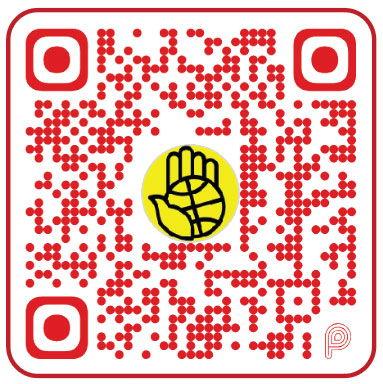Project Name
Prevention of Trafficking and Exploitation of Women and Vulnerable Children in Chitwan District
Project Location
Nepal
Project Natures
- Anti-human Trafficking
- Children and Youth Development
- Livelihood Development
Project Objectives
- Reduce the risk of human trafficking in the service areas and help survivors live dignified lives in society.
- Increase educational opportunities for impoverished and vulnerable children, working hand in hand with the community to create a conducive learning environment.
Beneficiaries
- Women and children in the serving region
- Women working in adult entertainment establishments
No. of Beneficiaries
Approx. 1,878
Key Activities
- Conduct school awareness programmes and strengthen the capacity of Community Support Centres to raise awareness about Anti-Human Trafficking and assist survivors.
- Provide alternative livelihood opportunities to vulnerable women, including vocational support, counselling, health check-ups, and emergency medical support for workers in the Adult Entertainment Sector (AES).
- Offer scholarship packages, tuition classes, and essential living and medical support to disadvantaged and marginalised children.
- Equip school libraries with reading materials and organise monthly extracurricular activities for Grade 1-10 students, along with mobilisation activities and life skills education for at-risk adolescents and youth.
- Train schoolteachers, local church leaders, and school management committees to improve students’ access to quality education.
Project Period
Jul 2024 to Jun 2025
Expenses
Approx. HK$392,500
IMPACT STORY
Finding Light in the Darkness: Sapana’s Story
Sapana Pariyar, 26 years old, grew up with her parents and four siblings. One day in sixth grade, she suddenly realised she was partially blind while playing hide-and-seek at school. Her left eye had hurt since she was young, but it wasn’t until that moment that she realised she couldn’t see out of it, and her parents had never noticed either.
Her father occasionally did temporary jobs, but most of his earnings were spent on alcohol. When he got drunk, he often shouted at them and even hit them. With no other source of income, the family struggled to afford basic food, let alone school fees. To ease the burden on her family, Sapana had to drop out of school in eighth grade and move to her sister’s house in Bharatpur, where she helped with housework and took care of the children.
A turning point in her life came when she met a woman from the Adult Entertainment Sector (AES). Through this woman’s introduction, Sapana started working at an adult club. Everything there was new to her: new place, new environment, and new friends. She initially enjoyed the job as she had loved singing since she was a child.

However, she soon encountered the dark side of the industry. Over the past four years, Sapana worked at two clubs and witnessed various forms of abuse towards AES workers by owners and customers. They often did not receive their wages on time and didn’t have formal employment contracts. Even small mistakes would result in scolding and abuse. Many workers, under pressure, turned to smoking and drinking. Additionally, being from the lowest social caste, referred to as ‘Dalit’ or ‘untouchable’, Sapana faced discrimination not only from owners and customers but also from her colleagues.
Previously, Sapana had no knowledge of her rights. Regardless of the abuse she endured, she felt she had no other choice but to tolerate it. Thankfully, Sapana later joined our project network, where she learned a lot. For example, long hours of dancing and singing prevented her from getting adequate sleep, seriously harming her health. Despite this, due to her poor family conditions and lack of other skills, she couldn’t quit even if she wanted to.
Within the project network, Sapana expressed her needs: she wanted to learn vocational skills and become self-employed. In response, we provided her with vocational training. Currently, Sapana is undergoing a six-month beautician training course. She is hopeful that upon completing this course, she will be able to leave the AES for good and start a new chapter in her life.
PARTNER INFORMATION
Partner Name
Samari Utthan Sewa (SUS)
Year of establishment
2008
The Year Our Partnership Started
2014
Partner's Mission
Committed to the empowerment and holistic development of ethnic minorities, women, and vulnerable groups.
donation method
(Please specify: ‘Development & Advocacy’)
Cheque
Please make it payable to CEDAR FUND
Direct Deposit
HSBC: 004-600-385678-001
BEA: 015-185-68-00931-7SSA
BOC: 012-581-2-020114-7
DBS: 016-478-001364162
Faster Payment System
FPS ID: 3354016 or scan the below code in the online banking
After donation, please send a completed Donation Form, enclosing with cheque, bank-in slip or screenshot of successful payment along with your name, contact phone number and mailing address to us via mail, email or WhatsApp.
Address: CEDAR Fund, G.P.O. Box 3212, Hong Kong
Email: sharing@cedarfund.org
WhatsApp (for donation matters only): 5160 7549
- CEDAR is an approved charitable institution and trust of a public character under section 88 of the Inland Revenue Ordinance. Please visit Inland Revenue Department website for details.
- CEDAR Fund will issue a receipt for a donation of HK$100 or above for tax deduction. For a donation of less than HK$100, please get in touch with us to issue a receipt.
- Please DO NOT fax any donation information.



